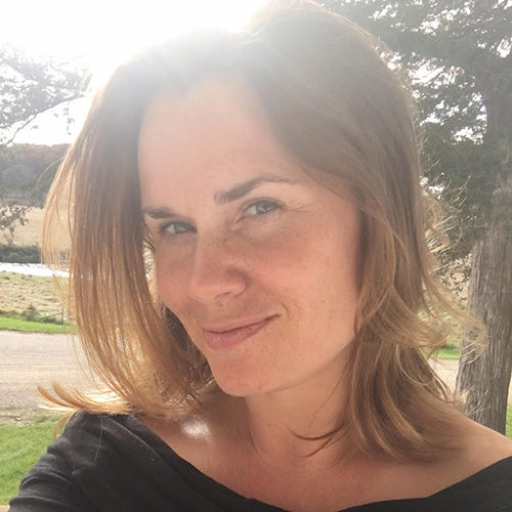Many people are speculating about the “future” and what our new world order will
look like once we’ve moved through the current global health
crisis;
especially amongst sustainability thought leaders, there is suddenly a wide-open
space everyone is running into, to eagerly predict what happens next. There’s
also an immense pressure to take on new behaviours and suddenly become newly
proficient at certain things, because — now that we are all individuals in
isolation — there’s an expectation to achieve a novel set of goals. There is,
what I’m calling, a “futurism frenzy” and a “hustle harder” mentality happening.
I am deliberately opting out of both.
If we look at this current crisis through the lens of top trending google
searches, we see we are all busy seeking out sourdough bread recipes, home
workouts and Netflix recommendations; not to mention ways to keep children busy
and have toilet paper delivered. If we step back, though, to look at the
original Greek root of the word “crisis,” we learn it means to “sift and
separate” — what if we use this as our lens, instead? What if we are being
called on to sift through and look at our lives? What if this is the work we
should be doing? Deep work — not ‘doing-focused,’ but instead ‘being-focused.’
Not hustling to achieve outward markers of success. Not racing away from this
precise moment, to dream up and share out our future visions. We are instead
being asked to sit still and listen. To think. To sift through.
Just like children at the beach with their sand sieves, we let fall all that is
not important. What does not get sifted, what remains with us, is where our
energy should go.
While we stay away from one another, we are encouraged to rethink how we spend
our time and what is important to us. This new lifestyle shifts us out of some
habits we might like to change anyway. We find we are not buying more than we
need; we disconnect from our over-reliance on global supply chains, we reconnect
with our local economy. We buy less and save even more; saving our money, but
also our planet. We are more focused than ever before on the community we live
in. While we may have family members far away who love us, now we see our
individual health as dependent on the health of the other person who is in the
same aisle at the grocery store; and we need them to love and care about us,
too. Those physically nearest have become, quite literally, our dearest. We
realize that we are all interconnected, interdependent; and that we belong to
each other. This is the focus sifting can bring.
The word “virus” first appeared as a word in the ancient Proto-Indo-European
language (PIE); its original meaning was “potent juice.” The power this virus
has is profound: It can move like liquid through all of our established systems
and change us — not just physically, but at a societal and cultural level, too.
It’s well documented that times of crisis can bring change, in rapid and
previously unexpected or unimagined ways, for the better. “Better” denotes
improvement, and can be traced back to the Sanskrit “bhadra,” meaning “blessed,
fortunate, happy.” How happy and fortunate we can feel to be resourceful and
courageous in this moment, to be a community united by a shared goal and common
purpose.
What does it say about how disconnected we must have been before, that we now
find joy in acts of overt altruism? What does it say about the profound and
restorative power of music, and of storytelling, that we have come together in
our shared love of the arts in our time of collective crisis? What does it say
about us that our greatest balm is being out in
nature,
on a simple walk? What were we missing before the great sifting, that we are so
drawn to now?
Perhaps realizing that what pushes us apart can also pull us together, perhaps
moving from the individually focused ego system to recognizing that we are one
united eco-system is the equivalent of the rock in the child’s sand sifter.
Perhaps this solace for our souls is what we will choose to hold onto and build
from.
Perhaps sifting and separating while in inner silence, instead of looking for
outward answers, is how the very best answers will actually find us.
A version of this post first appeared in the Voice of the River Valley on March 31, 2020.
Get the latest insights, trends, and innovations to help position yourself at the forefront of sustainable business leadership—delivered straight to your inbox.

Etienne is a marketing strategist, writer and sustainability storyteller. At SB, Etienne is the Founder and CEO of Let’s Create Possible.
Etienne runs a consulting business “Let’s Create Possible’ working at the nexus of sustainability and marketing to help make the impossible, possible, for a diverse array of B2B and B2C brands in the US and Europe. Earlier in her career, Etienne was Chief Marketing Officer at the Forest Stewardship Council, where she led the research, strategic and creative development of the global ‘Forests for all Forever’ rebranding. Before this Etienne held positions as VP Marketing for two US specialty retailers.
With more than 20 years of global brand management and marketing experience, Etienne has extensive knowledge in building both mainstream consumer brands and eco labels. Etienne began her career with over a decade in advertising (at agencies such as Fallon and Leo Burnett) leading award-winning, business-building marketing for a variety of global brands including Citibank, Nintendo, and Procter & Gamble.
Etienne is a native of London, England but now resides with her family in the US, working in her ‘spare’ time to restore and regenerate what was once a conventional farm, with her flock of free-range, grass fed, heritage breed sheep.
Published Apr 3, 2020 2pm EDT / 11am PDT / 7pm BST / 8pm CEST